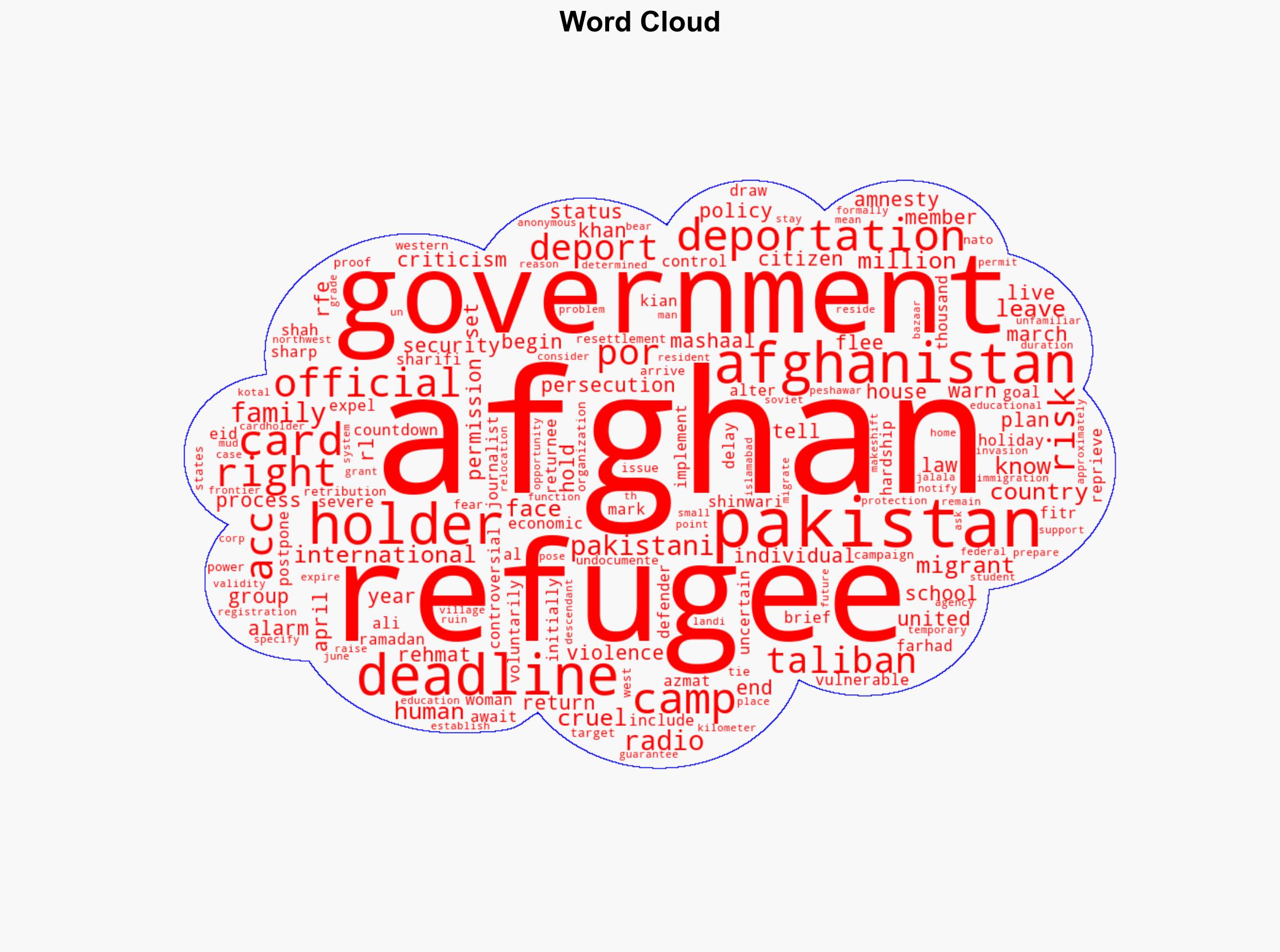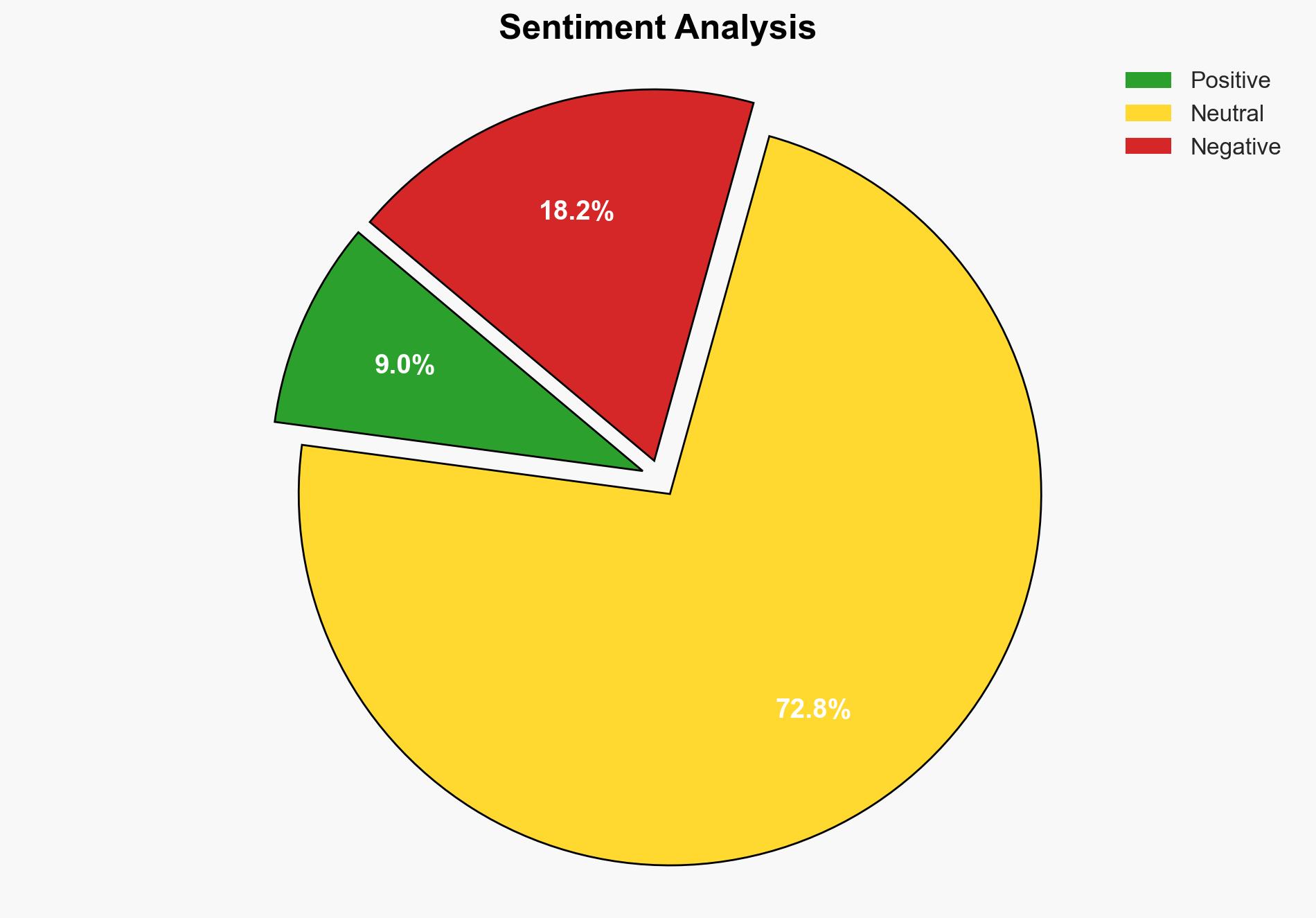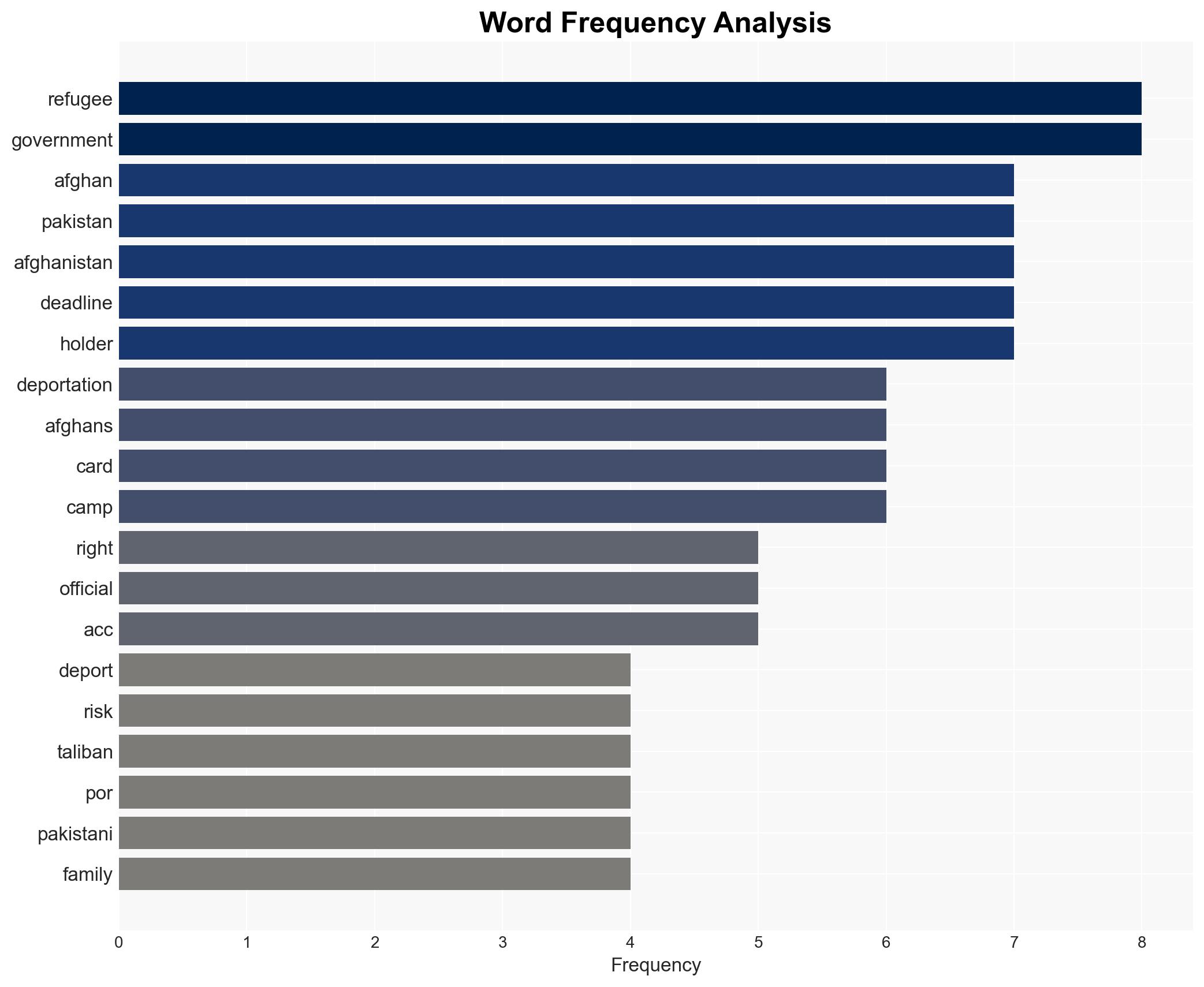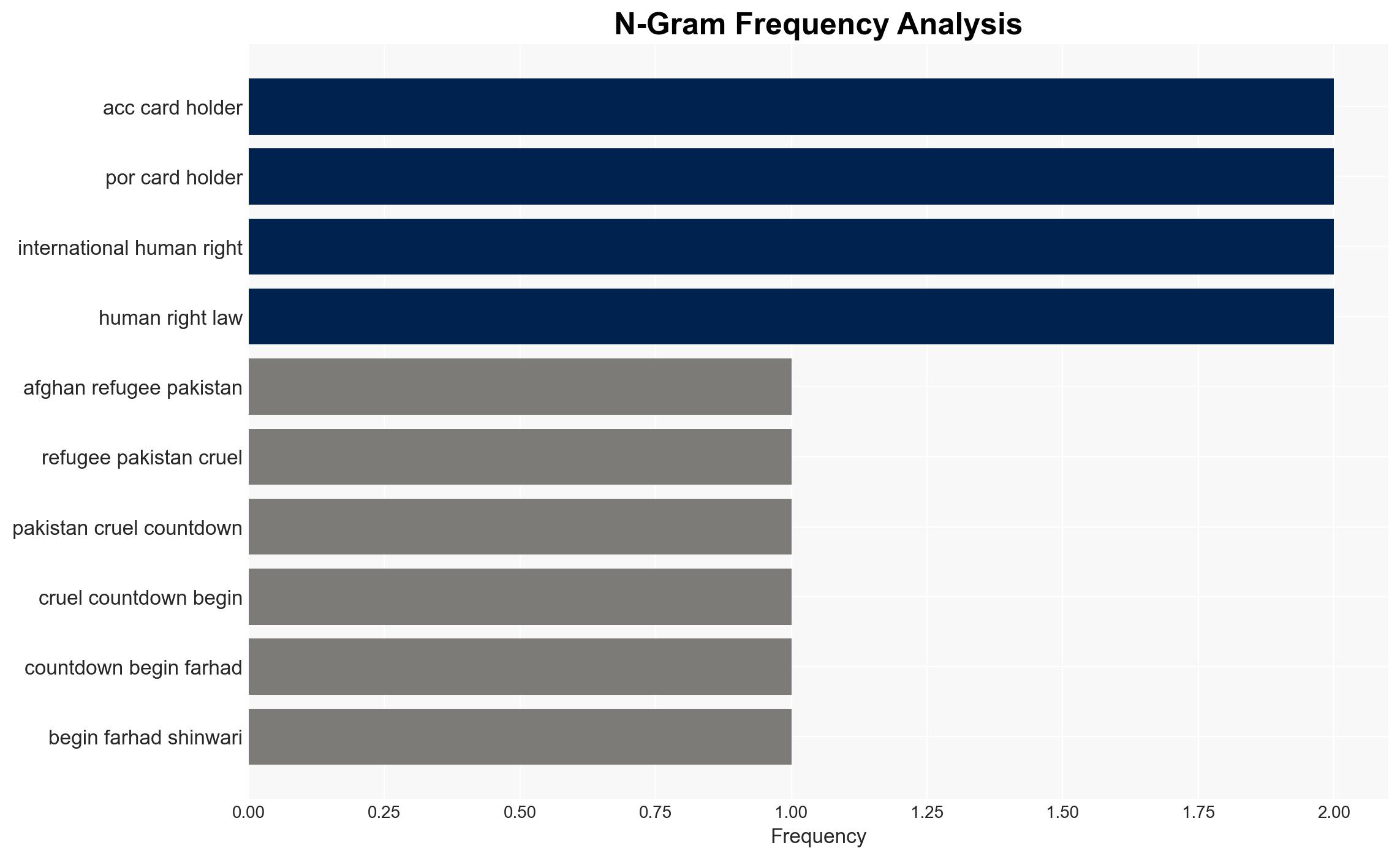For Afghan Refugees In Pakistan A ‘Cruel’ Countdown Has Begun – Globalsecurity.org
Published on: 2025-04-07
Intelligence Report: For Afghan Refugees In Pakistan A ‘Cruel’ Countdown Has Begun – Globalsecurity.org
1. BLUF (Bottom Line Up Front)
Pakistan plans to deport millions of Afghan refugees, drawing international criticism due to the severe risks these individuals face upon return to Taliban-controlled Afghanistan. The policy targets both documented and undocumented Afghans, with significant humanitarian and geopolitical implications. Immediate action is required to address potential human rights violations and regional instability.
2. Detailed Analysis
The following structured analytic techniques have been applied for this analysis:
General Analysis
Pakistan’s decision to deport Afghan refugees stems from a policy to manage undocumented immigration. The initial deadline for voluntary departure was postponed due to Eid al-Fitr, but the government remains committed to expelling a significant number of refugees by the end of the year. This policy affects Afghan Citizen Card (ACC) holders and Proof of Registration (PoR) cardholders, with the latter facing potential deportation once their permits expire in June.
The deportation campaign has been criticized by international human rights organizations, including Amnesty International and the United Nations, for violating principles of non-refoulement. The policy is seen as a violation of international human rights laws, particularly given the risks of persecution, violence, and economic hardship that returnees may face in Afghanistan.
3. Implications and Strategic Risks
The deportation policy poses several risks:
- Humanitarian Risk: Returnees may face persecution and violence under Taliban rule, particularly vulnerable groups such as women, journalists, and human rights defenders.
- Regional Stability: The mass deportation could destabilize Afghanistan further, exacerbating regional tensions and potentially leading to increased migration flows into neighboring countries.
- Economic Impact: The sudden influx of returnees could strain Afghanistan’s already fragile economy, leading to increased poverty and potential unrest.
- National Security: The policy may fuel anti-Pakistan sentiment among Afghan populations, potentially leading to increased security threats within Pakistan.
4. Recommendations and Outlook
Recommendations:
- Engage in diplomatic dialogue with international organizations to seek alternative solutions for Afghan refugees, such as third-country resettlement programs.
- Implement a phased and humane deportation process, ensuring that vulnerable individuals are provided with adequate protection and support.
- Enhance border security and monitoring to manage potential security threats while maintaining humanitarian standards.
Outlook:
Best-case scenario: Pakistan collaborates with international partners to find sustainable solutions for Afghan refugees, minimizing humanitarian risks and maintaining regional stability.
Worst-case scenario: Mass deportations proceed without adequate safeguards, leading to a humanitarian crisis and increased regional instability.
Most likely outcome: Pakistan continues with its deportation plans, facing ongoing international criticism and potential diplomatic repercussions, while some refugees find alternative resettlement options.
5. Key Individuals and Entities
The report mentions several individuals and organizations involved in the situation:
- Farhad Shinwari
- Azmat Ali Shah
- Kian Sharifi
- Rehmat Khan
- Philippa Candler
- Isabelle Lassee
- Amnesty International
- United Nations High Commissioner for Refugees (UNHCR)




